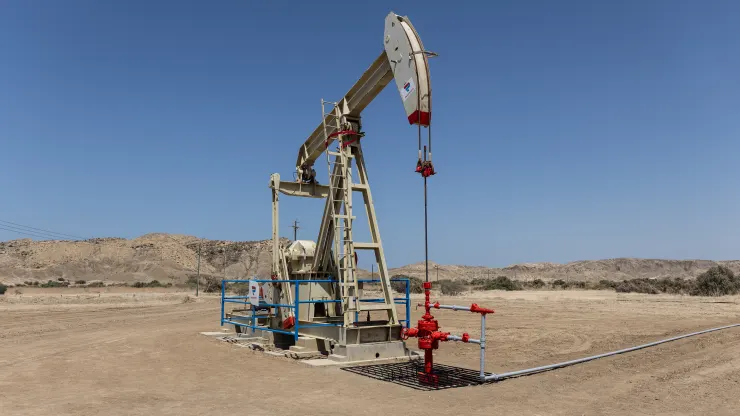

Oil prices edged down on Monday morning as markets digested comments from U.S. Federal Reserve officials pointing to a more patient stance regarding potential interest rate cuts, in thin early trade on what is a public holiday in the United States.
Brent crude futures were down 58 cents, or 0.69%, at $82.89 a barrel. U.S. West Texas Intermediate crude
was 35 cents, or 0.44%, lower at $78.84 at 0138 GMT.
Markets are yet to see the direction of demand from China after that country returns from a week-long Lunar New Year holiday, while Presidents’ Day in the United States is set to keep trade relatively muted.
After a week of disappointing U.S. economic data — showing rising prices and falling retail sales and factory production — Federal Reserve policymakers on Friday signaled “patience” toward interest rate cuts. Higher rates keep up the cost of buying oil, providing for a bearish market trend.
Over the weekend, tension in the Middle East continued as Israeli raids put the Gaza Strip’s second-largest hospital out of service, and Yemen’s Iran-aligned Houthi fighters claimed responsibility for an attack on an India-bound oil tanker.
The Organization of the Petroleum Exporting Countries, or OPEC, would be able to cover “most levels of disruption”, ANZ Research analysts said in a client note, as its spare capacity is at an eight-year high of 6.4 million barrels of oil per day.
“The market was also reminded of the uncertain outlook for demand, with the International Energy Agency warning that growth is expected to lose its steam in 2024,” ANZ said. The agency forecasts a market surplus during the year.
The United Nations Security Council is likely to vote on Tuesday on an Algerian push for the 15-member body to demand an immediate humanitarian ceasefire in the Israel-Hamas conflict, diplomats said, with the United States signalling it would veto.
In Europe, Russia on Sunday said it had full control of the Ukrainian town of Avdiivka in its biggest gain in nine months, days ahead of the two-year anniversary of its invasion.
It was not immediately clear whether the death of Alexei Navalny, President Vladimir Putin’s most high-profile opponent, in a Russian Arctic penal colony on Friday would trigger new sanctions on Moscow, the world’s second-biggest oil exporter.